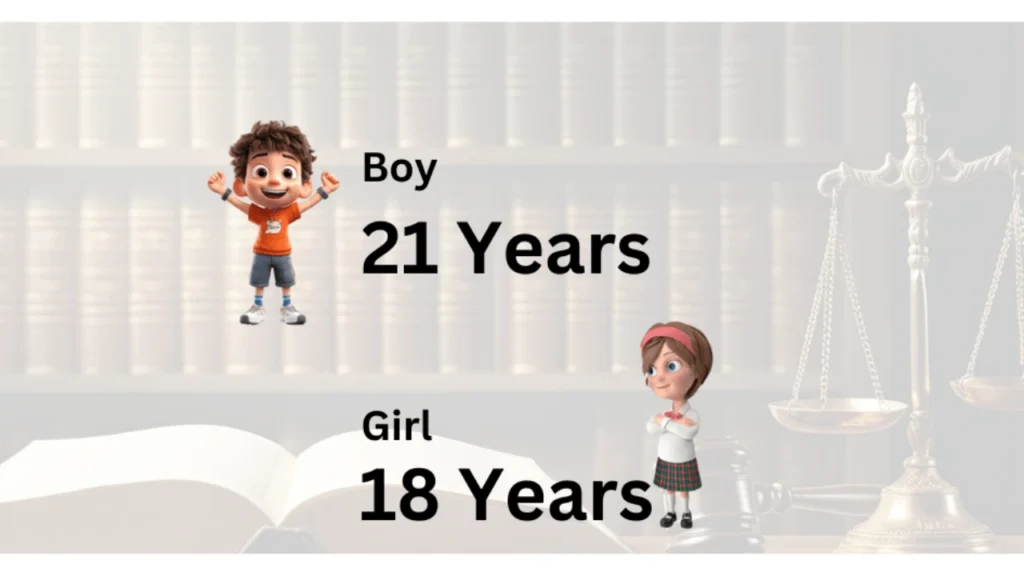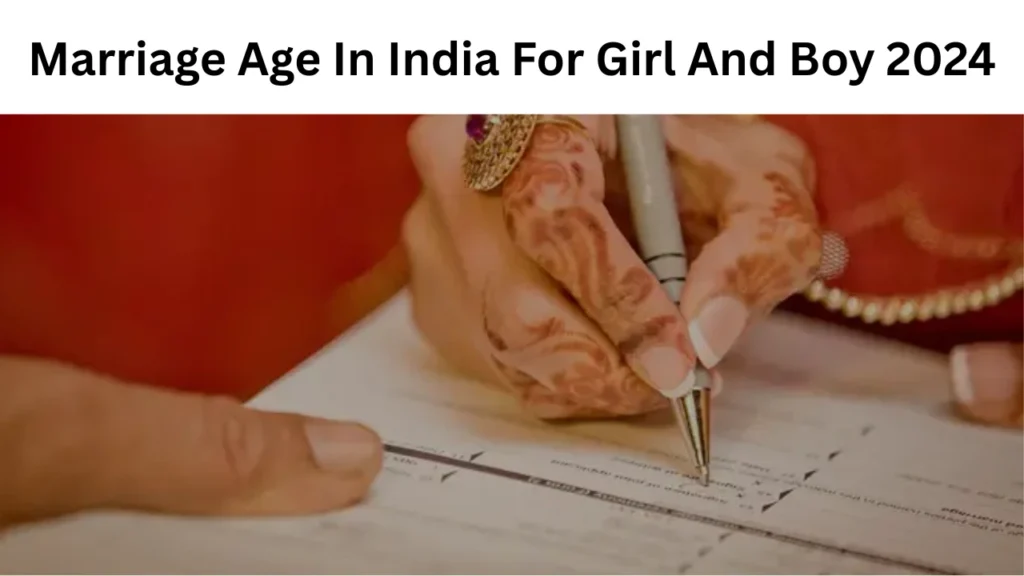In recent years, there has been growing public interest in understanding the legal marriage age across India. People often compare topics like Alex Star Age or celebrity milestones with the age of marriage in different cultures. But when it comes to real life and legality, knowing the marriage age in India for girl and boy 2024 is critical for both families and couples. This guide breaks down the current legal status, the proposed changes, and everything in between.
About Marriage Laws in India
Marriage is not only a cultural tradition but also a legal commitment in India. It is governed by various personal laws for different religions and a few central laws like the Prohibition of Child Marriage Act, 2006. The law aims to prevent early marriages and protect young individuals, especially women. In 2024, the government continues to implement this law strictly to ensure the physical and mental well-being of young citizens.
The current law clearly states that the legal marriage age in India for girl and boy 2024 is 18 years for girls and 21 years for boys. This standard has been followed for years and is applicable across all Indian states and union territories.
| Key Legal Frameworks | Description |
|---|---|
| Prohibition of Child Marriage Act, 2006 | Prevents marriages involving individuals below the legal age |
| Special Marriage Act, 1954 | Allows civil marriage regardless of religion |
| Personal Laws | Hindu Marriage Act, Muslim Law, Christian Marriage Act, etc. |
| Juvenile Justice Act | Provides protection for child marriage victims |
Legal Marriage Age for Boys and Girls in 2024

As per the current legal framework in India, the minimum age for marriage is:
| Gender | Legal Marriage Age | Law Enforced |
|---|---|---|
| Girl | 18 years | Prohibition of Child Marriage Act, 2006 |
| Boy | 21 years | Prohibition of Child Marriage Act, 2006 |
This law is applicable across all religions and regions in India. Any marriage conducted below these ages is voidable and punishable under the law.
Proposed Amendments and Legal Reforms in 2025
In 2021, the Indian government introduced the Prohibition of Child Marriage (Amendment) Bill, 2021, proposing to increase the legal age for girls from 18 to 21, to match that of boys. The bill is still under review and could be passed in late 2025.
| Amendment Proposal | Details |
|---|---|
| Proposed Age for Girls | 21 years |
| Objective | Ensure gender parity and promote education & health |
| Status as of 2024 | Not yet enacted, pending in Parliament |
| Recommendation By | Jaya Jaitly Task Force (2020) |
If passed, this will be one of the biggest reforms in Indian marriage law history. The proposal also allows girls who were married underage to annul the marriage until the age of 23.
Why Raise the Legal Age for Marriage?
There are several health, educational, and social reasons behind the push to raise the legal marriage age for girls in India.
| Reason | Impact |
|---|---|
| Health Concerns | Reduces maternal and infant mortality caused by early pregnancies |
| Education Continuity | Enables girls to complete higher education before marriage |
| Gender Equality | Matches marriage age with boys, promoting fairness |
| Workforce Participation | Encourages women to build careers and contribute to the economy |
Studies have shown that girls who marry after 21 are less likely to drop out of school and more likely to access healthcare and career opportunities.
Penalties for Child Marriage
Even though the law is strict, child marriage still occurs in some parts of India, especially rural areas. But the government has become more active in punishing those involved in arranging such marriages.
Under the Prohibition of Child Marriage Act:
- Anyone involved in a child marriage can face up to 2 years of imprisonment.
- Fines can go up to ₹1,00,000.
- The marriage can be annulled if the child chooses to leave after turning 18.
These laws are meant to protect the rights of minors and ensure that both boys and girls receive education and opportunities before taking on marital responsibilities.
Role of Legal Professionals in Marriage-Related Issues
Legal professionals such as lawyers and marriage registrars play a vital role in enforcing marriage laws in India.
- Marriage Registrars verify the age and consent of both parties before legal registration.
- Family Lawyers assist in cases of forced or child marriages and offer legal remedies.
- Judges may annul illegal marriages or issue protection orders in case of underage or abusive marriages.
| Role | Responsibility |
|---|---|
| Marriage Registrar | Verifies legal age and processes documents |
| Lawyer | Files petitions, offers legal protection |
| Judge | Grants annulments or protection orders |
| NGOs & Legal Aid Clinics | Provide support and counseling to victims |
Legal Remedies and Support for Underage Marriage Victims
Victims of child or forced marriages have access to multiple legal remedies and support mechanisms:
- A court can annul the marriage by issuing an order.
- Authorities can jail or fine the perpetrators under the Prohibition of Child Marriage Act.
- Government agencies and NGOs offer victims shelter, rehabilitation, and legal aid.
| Legal Support | Description |
|---|---|
| Annulment | Victim can annul marriage up to age 23 (proposed law) |
| Criminal Charges | Parents/offenders can face 2 years imprisonment and fines up to ₹1 lakh |
| Rehabilitation | Government-run shelters and care centers for affected girls |
| Free Legal Aid | Provided by State Legal Services Authorities |
These protections are especially important for girls from rural or underprivileged communities, where early marriage is still practiced.
Conclusion
The marriage age in India for girl and boy in 2024 remains 18 for girls and 21 for boys. While a new bill is under consideration to raise the legal age for girls to 21, it has not yet become law. This proposed change aims to promote gender equality, reduce early pregnancy risks, and provide young women with more time to pursue education and career opportunities. For victims of underage marriages, legal remedies, shelters, and support services are available. As we move closer to 2025, increasing public awareness and ongoing legal reforms are shaping a more just and secure marital framework in India. To explore how age impacts various public figures and cultural shifts, learn more about Celebrities Age At Indocelebs.



